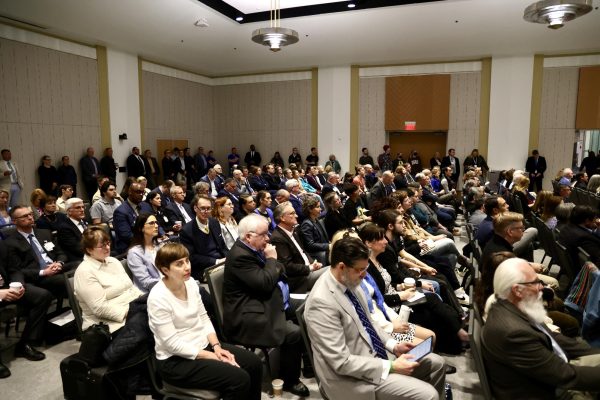Ky. House budget bill restores $40 million for UK
March 18, 2008
The Kentucky House of Representatives has approved a budget that uses revenue from tax increases to get funding for state programs, including restoring $40 million in funding for UK over the next two years.
In a 50-45 vote last week, the House approved a $19 billion state budget for the next two years that would raise both the gas tax and the cigarette tax. The estimated $300 million raised by the increases would be used to reverse much of Gov. Steve Beshear’s proposed 12 percent budget cut for state agencies and public universities.
Under the plan passed by the House, the gas tax would go up 1.5 cents per gallon. The funds would be used to pay for $500 million in road repair. The cigarette tax would nearly double, up 25 cents per pack from the 30 cents currently levied.
To take effect, the budget still needs the approval of the state Senate and the governor’s signature.
The bill also provides full funding for the Kentucky Educational Excellence Scholarship program, which uses state dollars to supplement lottery earnings. However, the Senate may consider KEES cuts when it receives the budget to revise, said Rep. Jim Wayne, D-Louisville.
“That’s a nonessential government service, so it’s something that could easily be put on the chopping block,†said Wayne, who sponsored the House’s tax increase bill.
The budget passed by the House would leave in place a 3 percent cut for public universities enacted by the governor in December. The $40 million restoration will help the university with costs, but it is too early to tell what impact the cut would have on UK’s budget and tuition increases, President Lee Todd said in a statement to the Kernel.
“Going forward, one of our chief goals is to try to hold down tuition costs as much as possible, while recognizing that an increase of some level is inevitable, given rising costs for heating, building materials and other essentials,†Todd said.
Tuition rates will not be decided until April. Last month, Todd said UK could not guarantee a tuition increase under 10 percent if the state does not give UK the funding to meet the goals set by the university’s Top 20 Business Plan. UK’s plan calls for state appropriations to increase by $20 million each year.
It is also undecided if the current staff hiring freeze will end if the final budget includes the restored funding, said UK spokesman Jay Blanton.
The bill would also cut 3,412 state jobs through attrition, which means employees who leave state jobs would not be replaced. About 5,460 state employees are expected to retire this year, according to a release from the Speaker of the House’s office.
Raising taxes and cutting jobs for revenue will keep tuition rates manageable, Wayne said. He also said he expects the public may not be receptive to the House’s tax increases.
“There’s always some pushback,†Wayne said. “Some people don’t understand there’s no way we can provide these services without tax increases.â€
“If we don’t have revenue, there could be devastating cuts in services,†he said.
Rep. Bob Damron, D-Lexington, voted against the House bill raising taxes. He said the gas tax comes at a time when oil prices are at an all-time high, and the cigarette tax could harm McLane, a shipping company with a factory in Nicholasville, Ky., that would have to pay between $3 and $4 million in inventory taxes.
The Senate is expected to review, and potentially revise, the budget by April 1. The Senate has been meeting off and on all weekend to discuss changes, said Sen. Alice Forgy Kerr, R-Lexington. Coming up with a budget will require looking at the contrasting proposals of the governor and the House, Kerr said.
“This is a work in progress,†Kerr said. “We’re looking at all the options.â€
After the Senate, the budget will go to the conference committee between the House and the Senate, and then to the governor. The budget then goes to the House and then the Senate again for approval.
The process scheduled to end by the April 15 deadline will be long, and reaching an agreement between the House and Senate may be tough, Damron said.
“It’s a lot of give and take — and anguish and scratching and clawing,†he said.





















































































































































